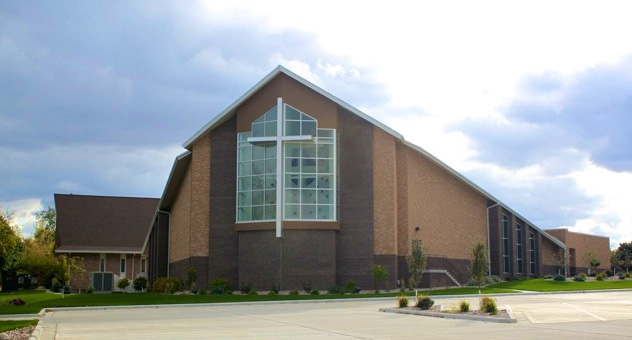One of my favorite lines in Luke’s version of the Christmas story is Luke 2:19… “But Mary treasured up all these things and pondered them in her heart.” I don’t know about you, but I like to ponder. Ponder isn’t a word that we use too often in modern language (unless you’re a Vikings fan), but ponder means to reflect with thoroughness and care. My trouble with pondering is that it almost always involves tears. When I ponder the past twelve months, my eyes moisten… For anyone that knows me even a little, that does not come as a surprise. I am a crier. Don’t label me as a baby or a wimp; I merely succumb to outward signs of emotion when something pulls at my heart strings. I cry at funerals; I cry at weddings; I cry at recitals; I cry at sporting events; I cry during movies; I even cry during commercials. I just can’t help it. I used to try and hide my tears, but I have embraced the fact that is how God made me and if the Bible tells me that I was made in the image of my Creator, then God must be emotional as well.
One of the most recent events that lodged a lump in my throat and caused my eyes to drip and my nose to snivel happened last week Sunday morning. After scheduling communion for four Sundays in a row, one might argue that the sacrament would lose its specialness, but the communion service on December 21 will be one that I will not forget for a very long time. Mike had asked me to send out an email to the congregation concerning children taking communion and had also given me an announcement to print in the bulletin, so I was not in the dark about what was going to happen, but my emotions were not prepared for what I was going to witness.
Maybe it was the conviction of the Holy Spirit during the message that primed the pump that morning, but as I returned to my pew and watched the people come forward for communion, the tears flowed. I have never seen a more beautiful picture of the salvation of the world being poured out for all. Sharing a common loaf of bread, a common cup, and a common need for a Savior, I witnessed people from every corner of life come forward. I inhaled the scene of kids who were unsure of how to navigate this new opportunity, mothers and fathers offering assistance to their youngsters, elderly Elders stooping low with their cup of juice so a child could dip his bread, farmers, pharisees, teachers, truck drivers, grandpas, grandmas, addicts, abusers, expectant mothers, suited men, and costumed shepherds… I scarce could take it in. And as I looked up, I saw the images on the screen of Jesus being nailed to the cross for each one. Blood dripping to the ground… grape juice dripping on the carpet… tears dripping off my chin…
During the first week of communion this Advent season, we were seated in front of a young family and I recall hearing the child think out loud, “I wonder why kids don’t get to eat”, and I found myself contemplating the same thing. Can you imagine preparing a meal for your family, and only allowing half of them to eat before the leftovers were put away? Jesus did more than prepare a meal for us, he offered himself to us.
As you ponder 2014, I pray that you will recall moments when the Teacher was talking to you, special times when you danced with the Spirit, and mostly what Jesus paid for us all to be called his Children. “Let the children come to me. Don’t stop them! For the Kingdom of Heaven belongs to those who are like these children.” (Matthew 19:14)
Erin Jacobsma








